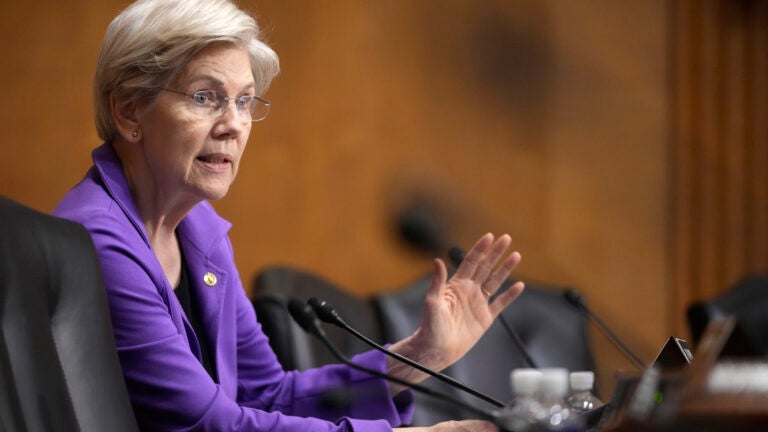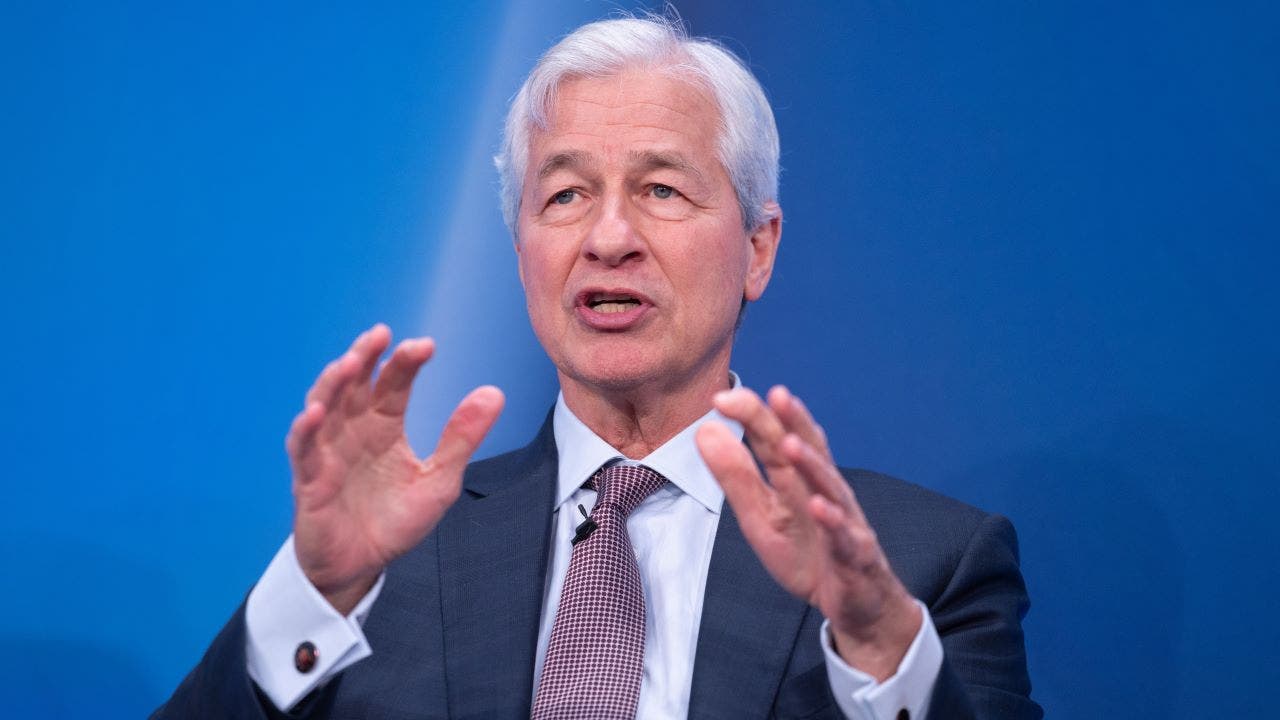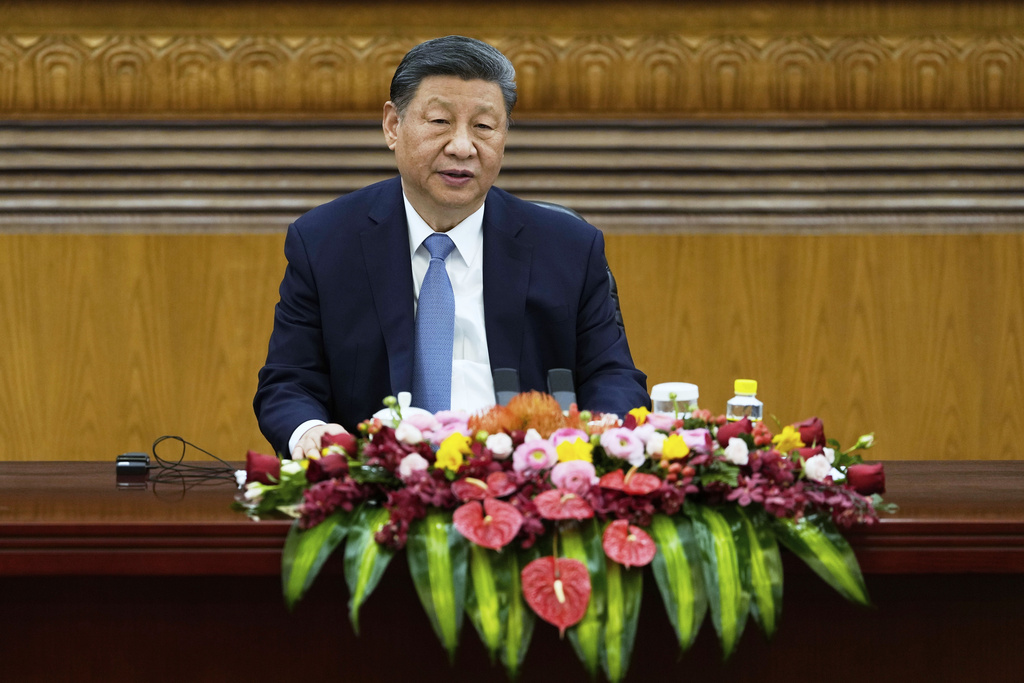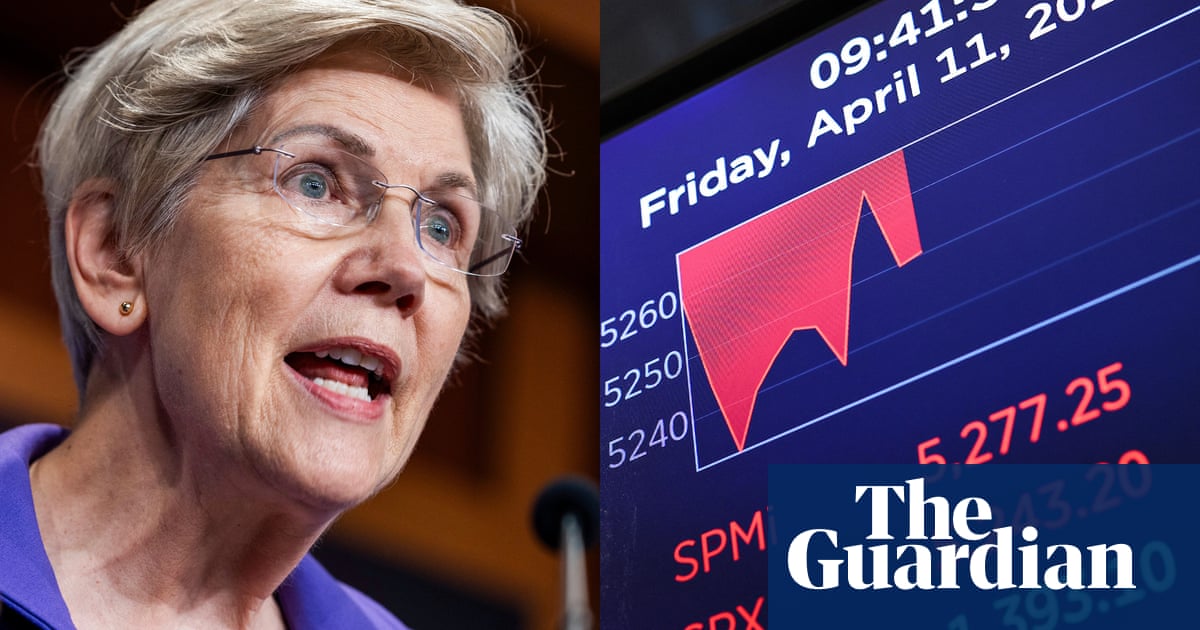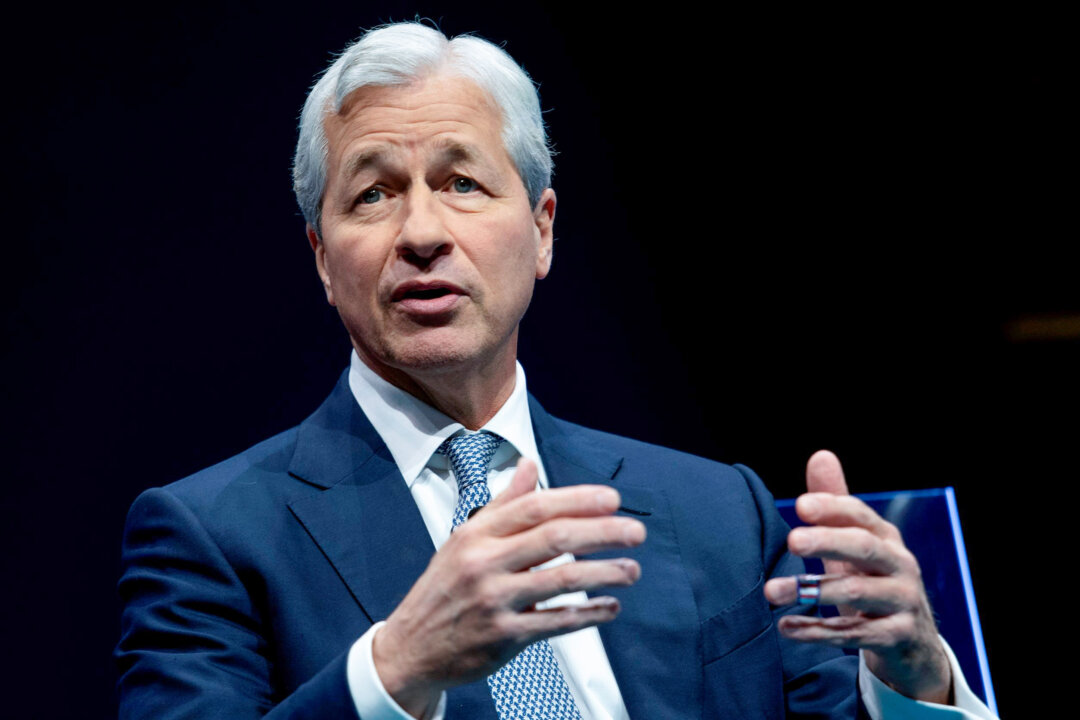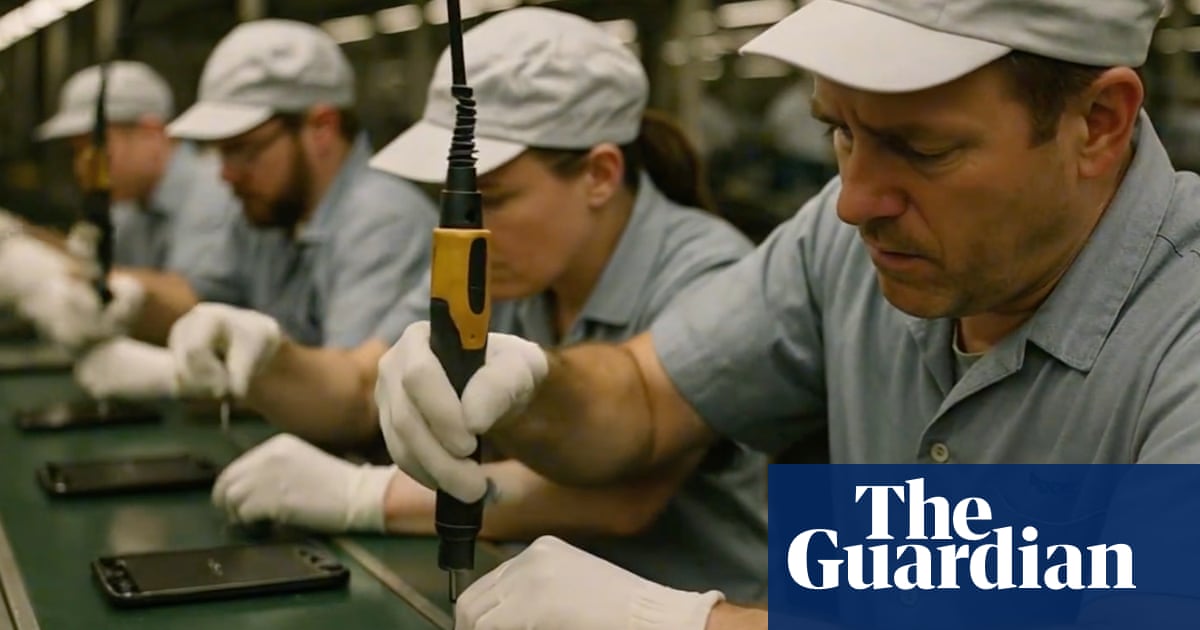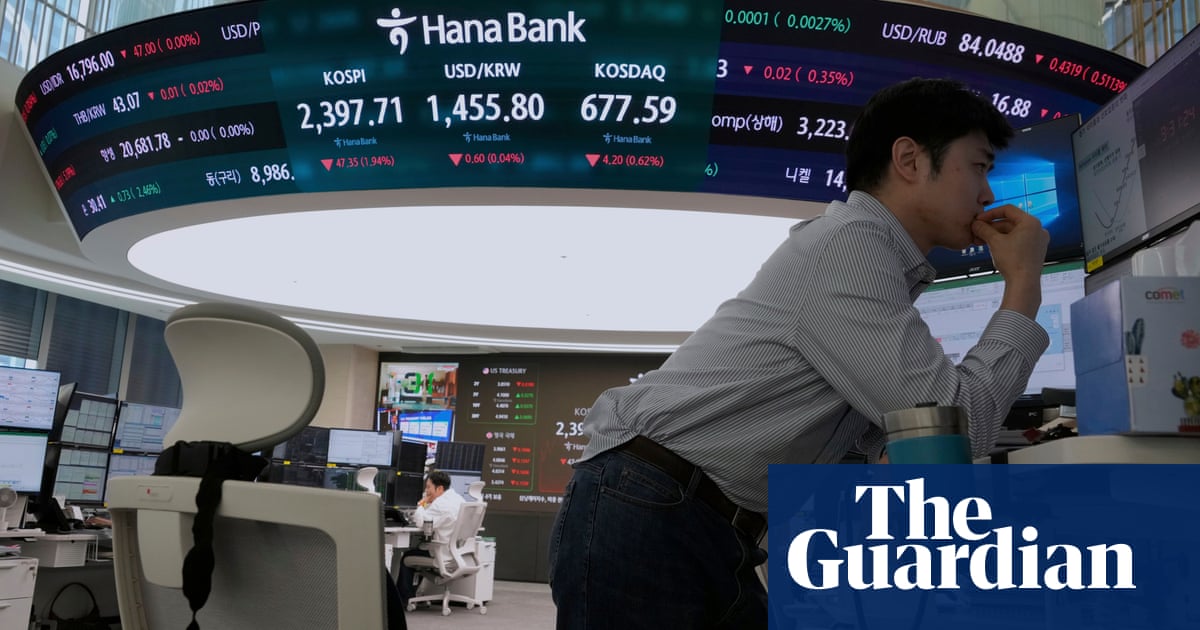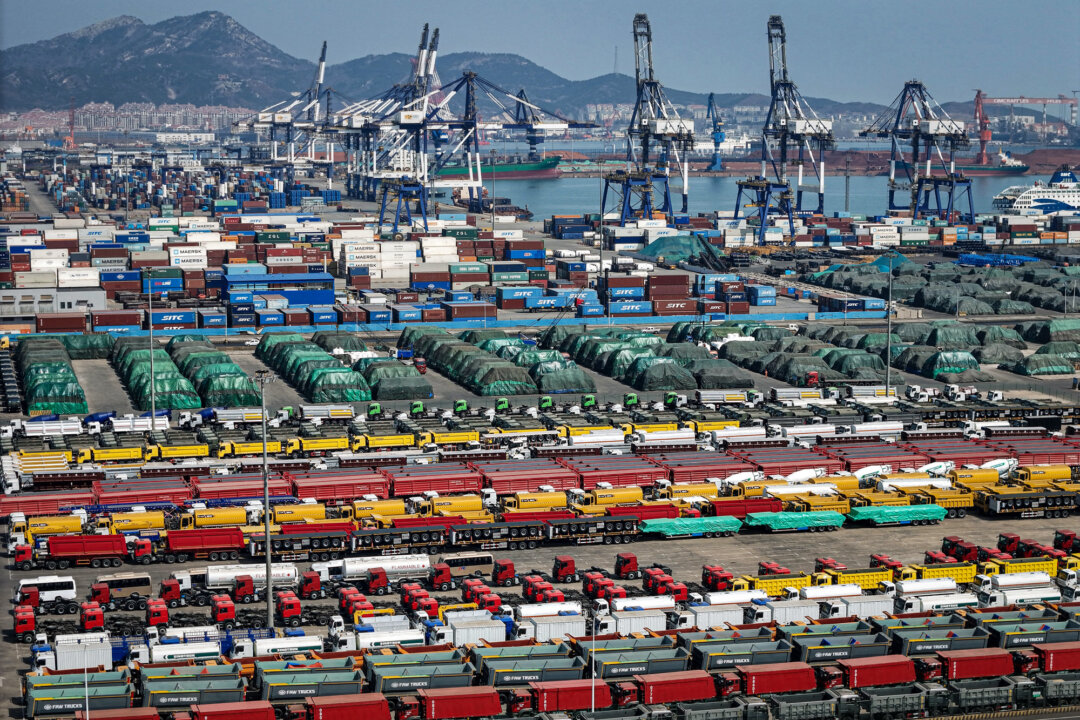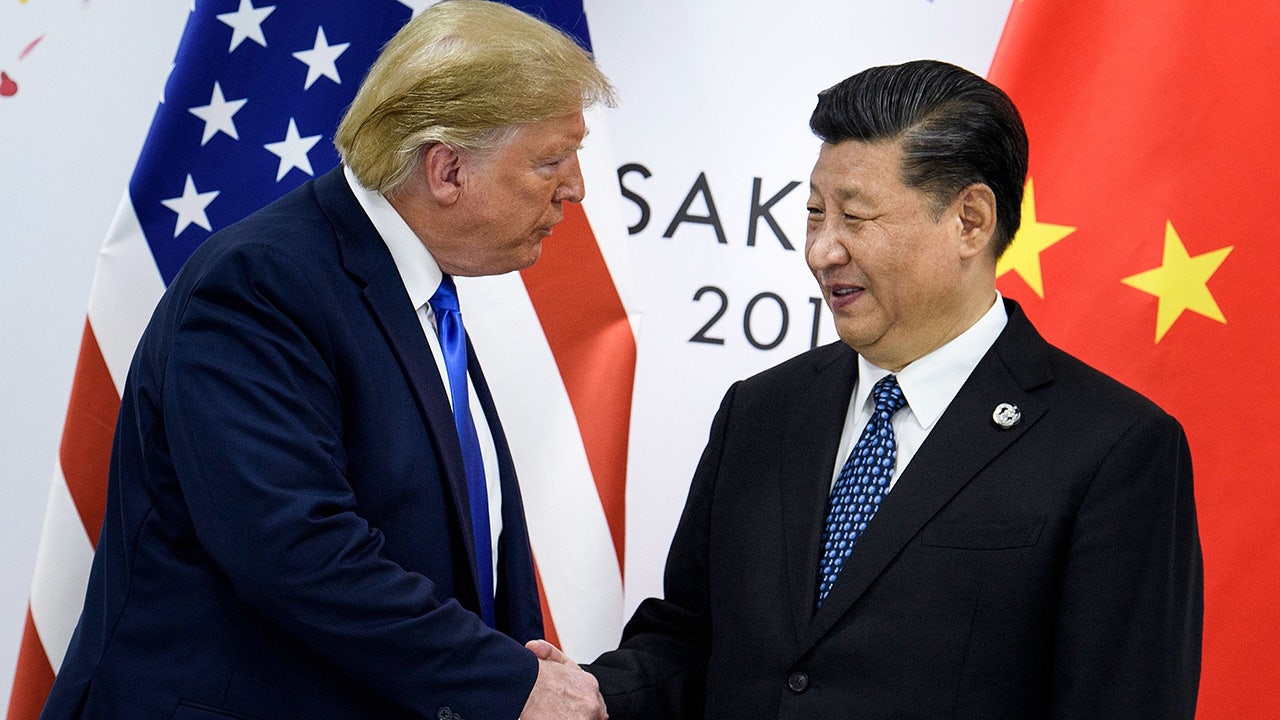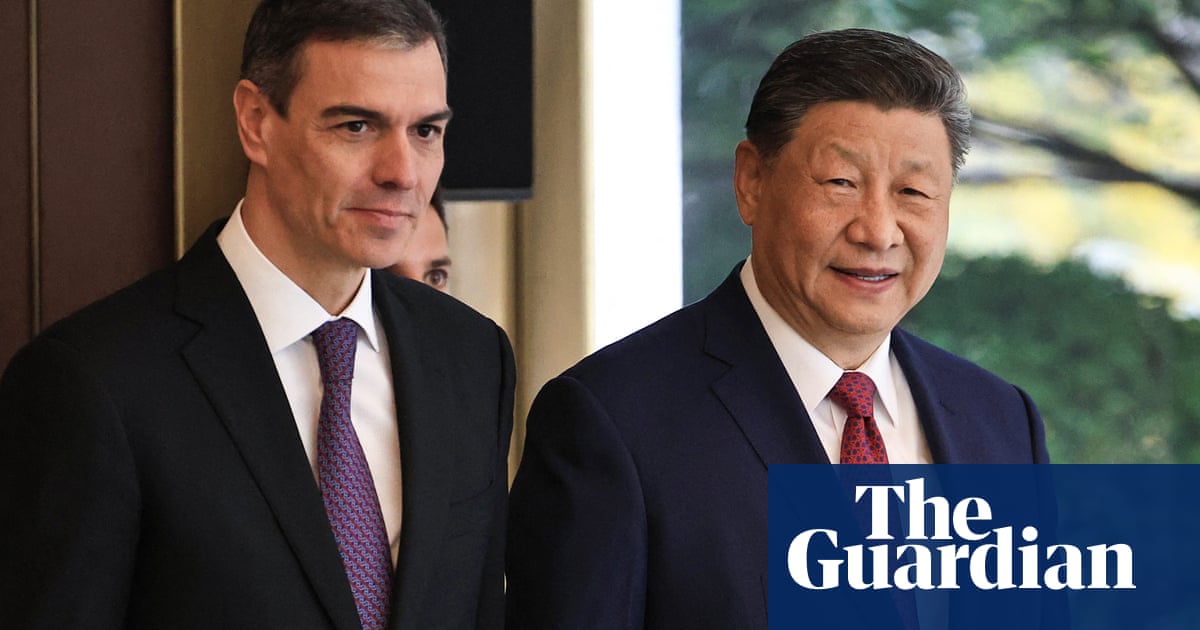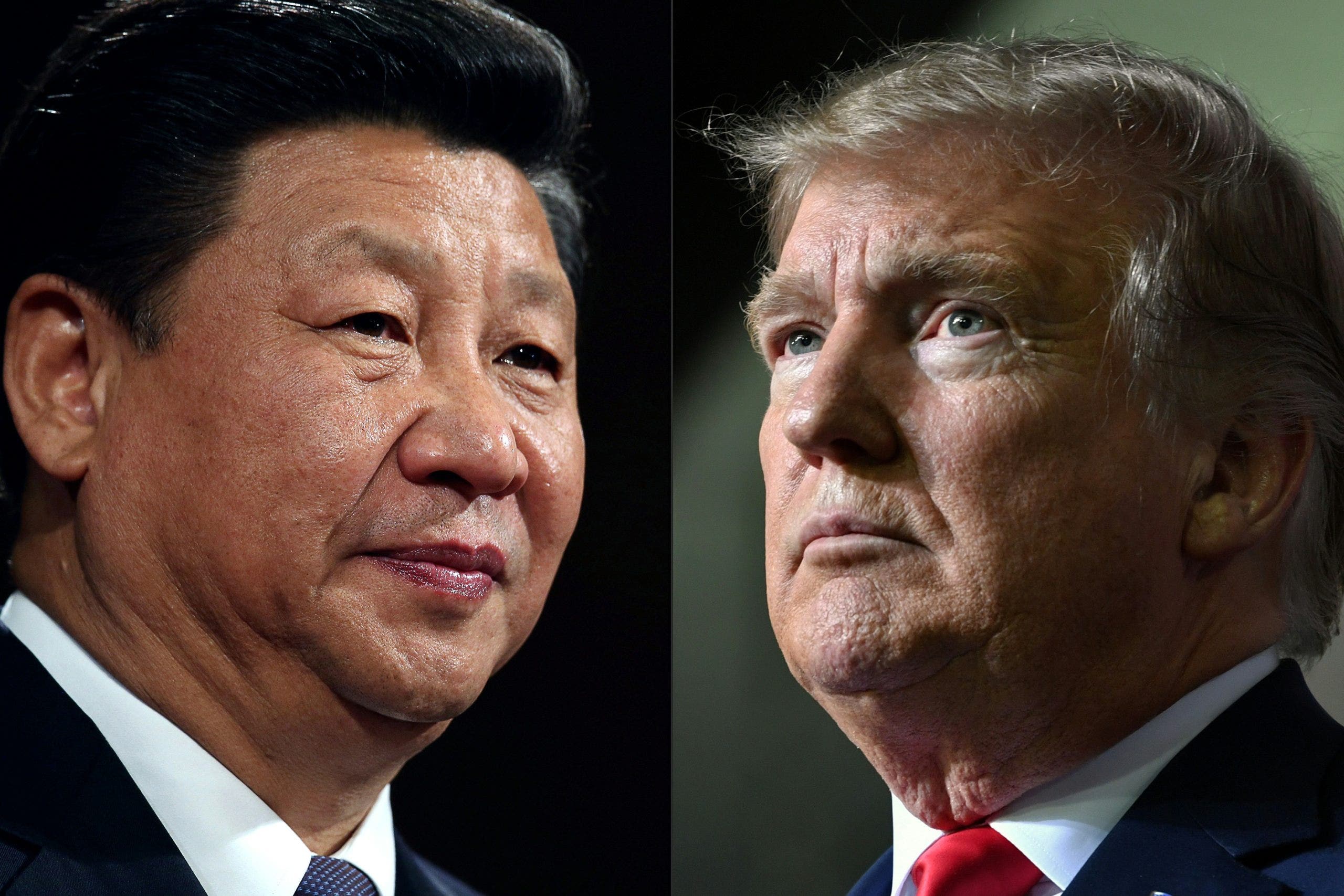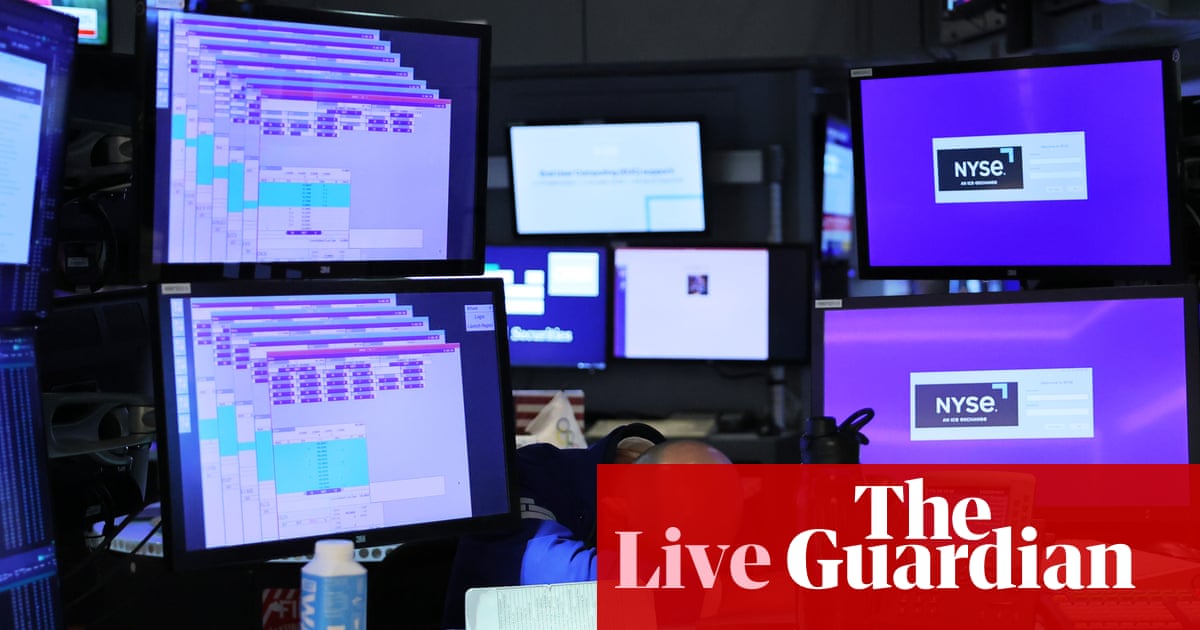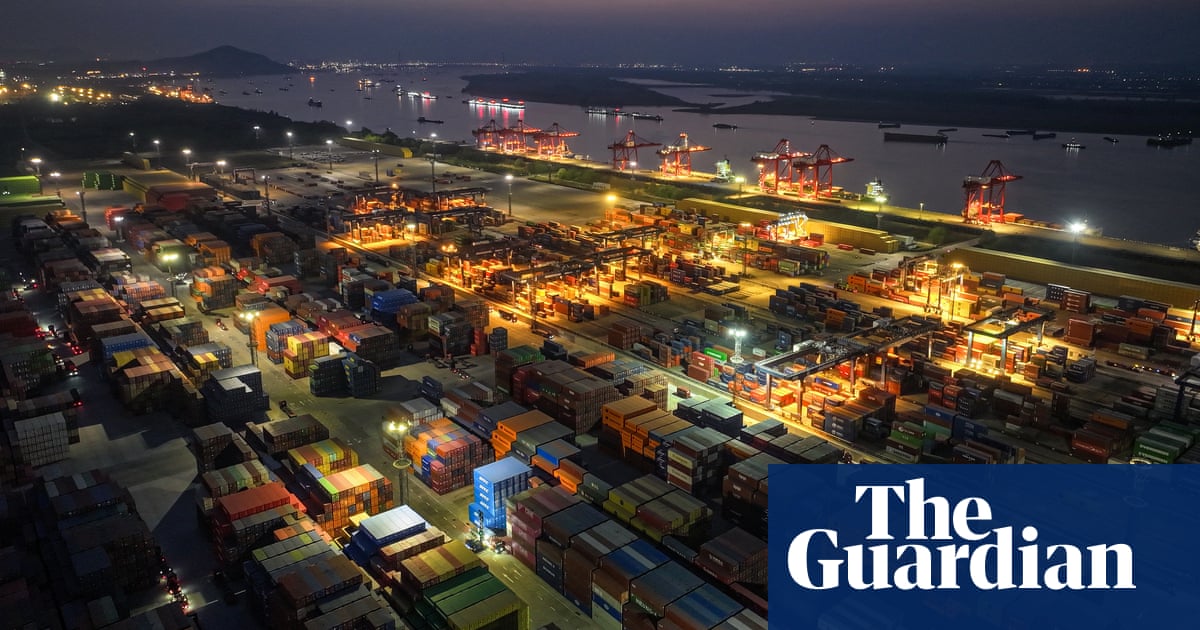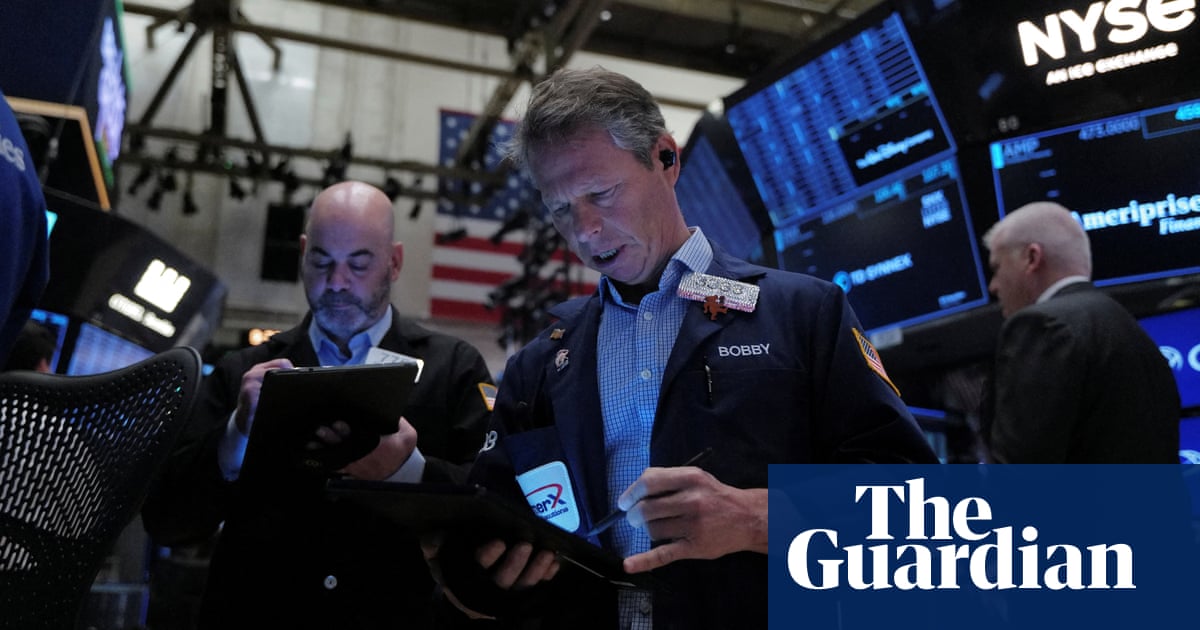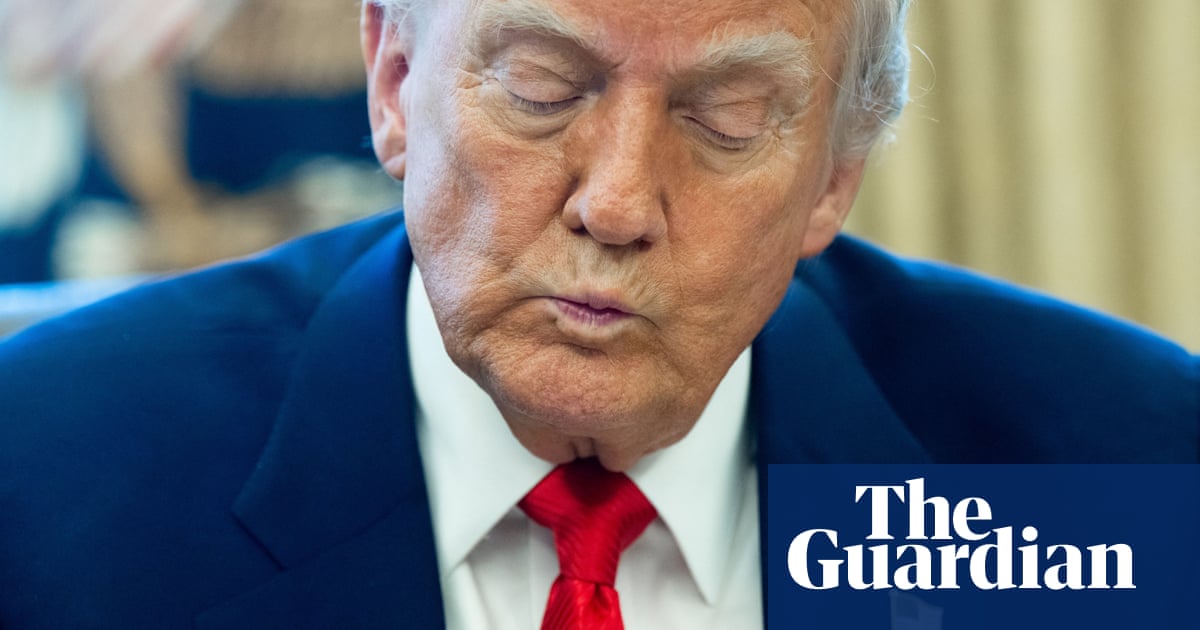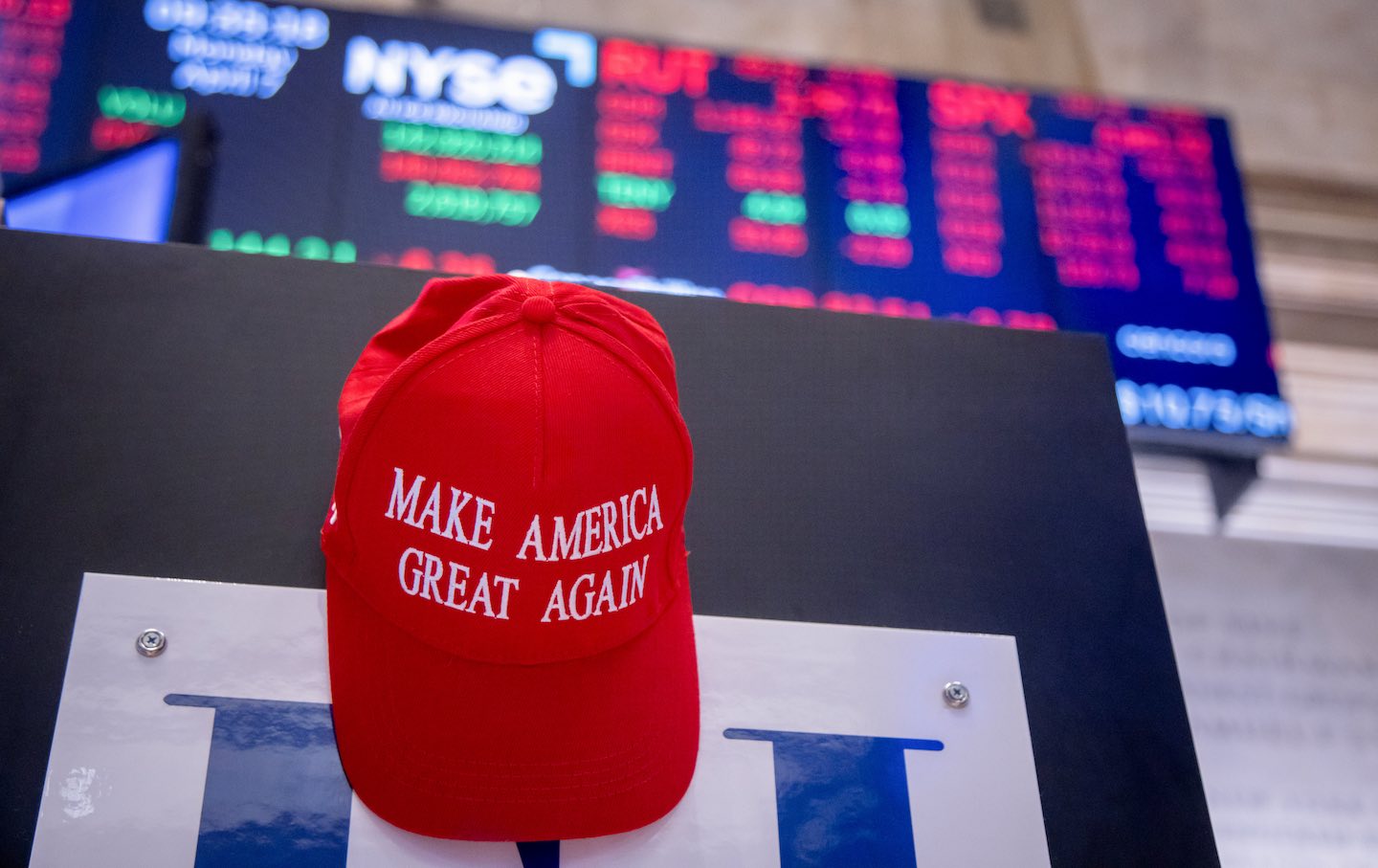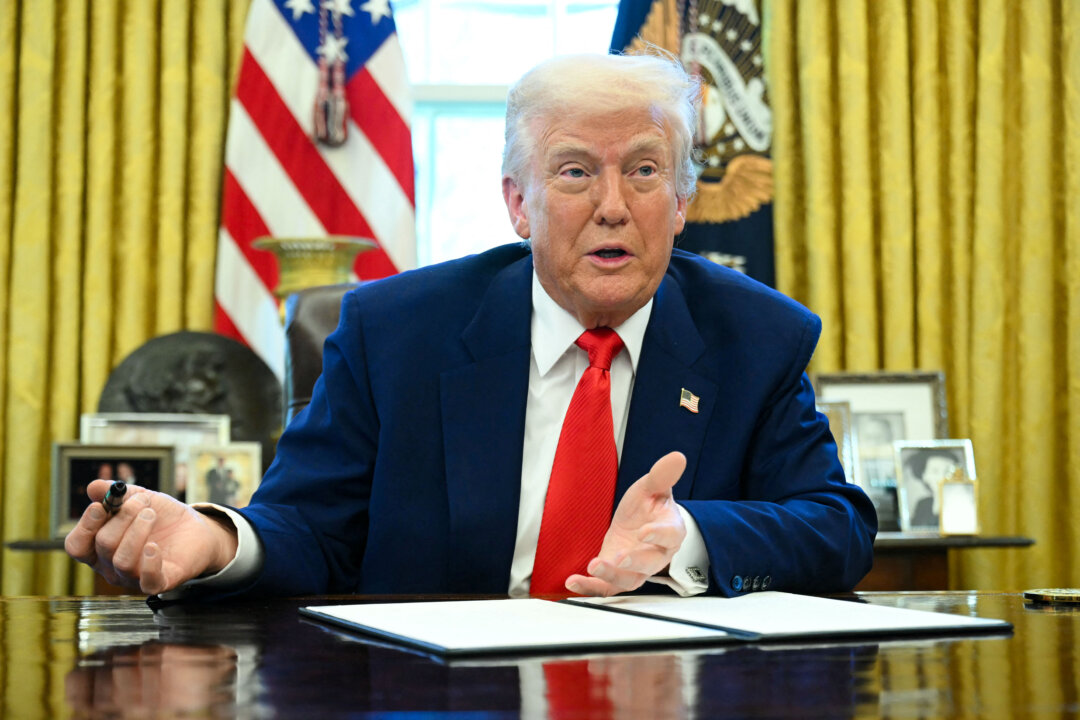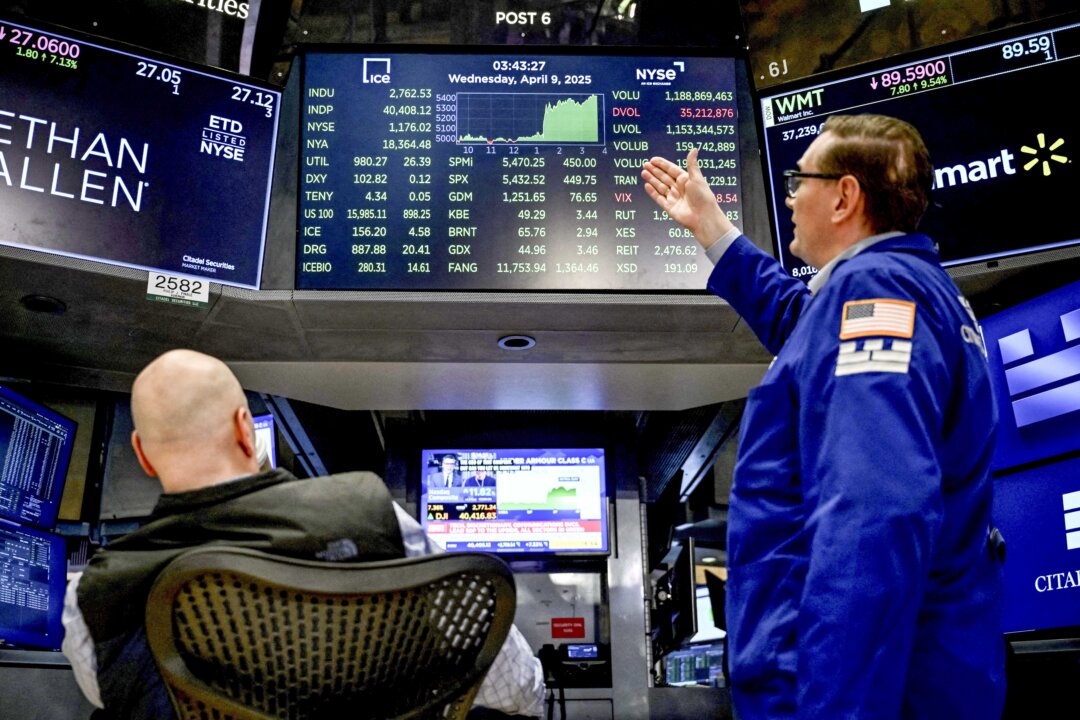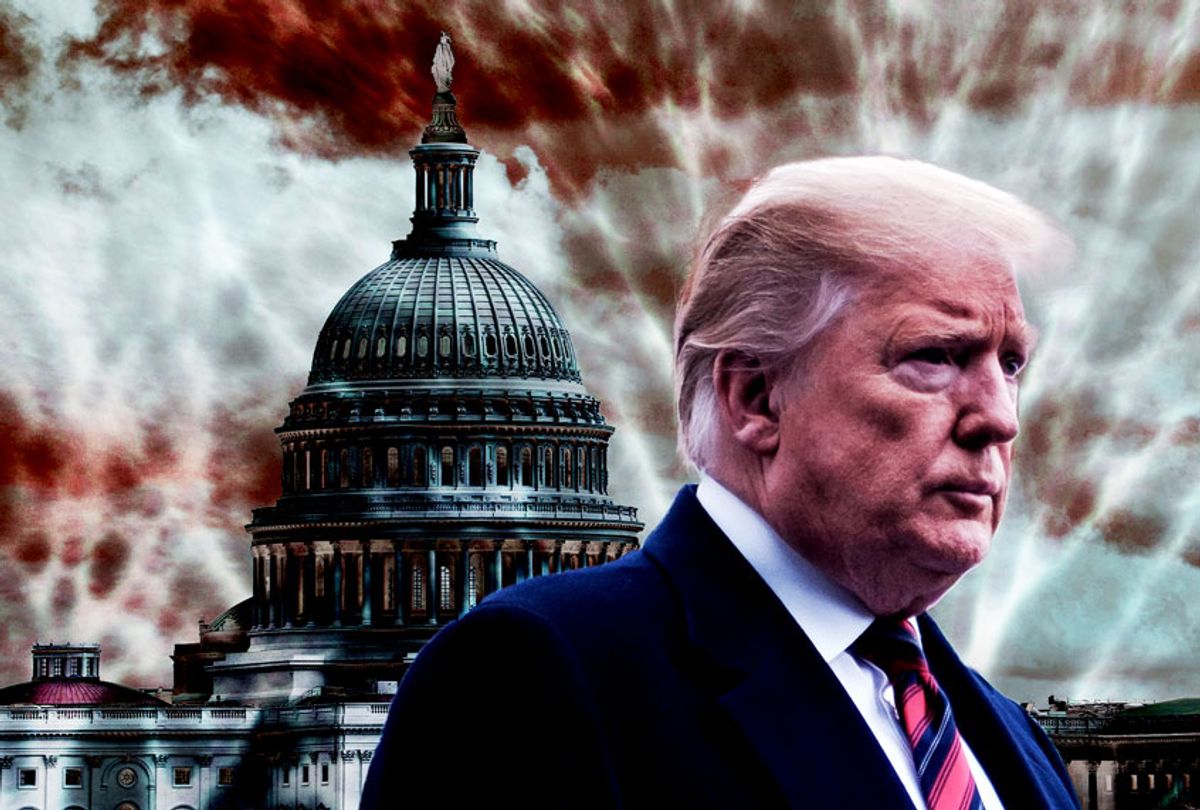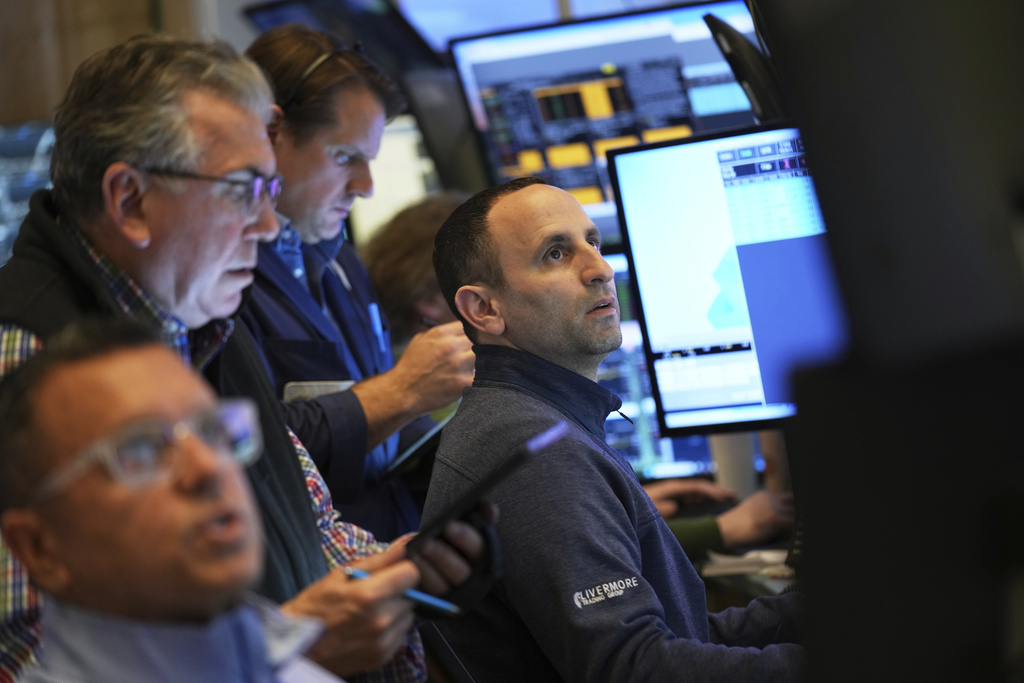Escalating U.S.-China Trade War Forces Apple to Navigate Tough Terrain Amid Rising Tariffs
Apple faces global price increases due to U.S.-China trade tensions, as tariffs impact supply chains and consumer sentiment declines sharply.

Beyond China-US tariffs, officials warn of 'tsunami' of cheap Chinese goods
Straight Arrow News

Warren, Democrats ask SEC to investigate Trump tariff social media post
Straight Arrow News

Why China Won’t Give In to Trump
The Atlantic

Who Holds The Cards In US-China Trade War?
Daily Caller

China Launches New Trade Salvo Against US
Daily Caller
Q&A: What has China done so far? What could China do next?
Associated Press

Op-Ed: Trump's Tariffs Will Not Cause Inflation - Here's Why
Western Journal

So … What's Going on With the Tariffs Now?
Rolling Stone

Even Trump Voters Fear the Tariffs
The Bulwark

The Tariff Damage That Can’t Be Undone
The Atlantic

Trump Didn’t Actually Undo Tariffs
The Atlantic

Trump figuring out next steps in global tariff battle
Associated Press
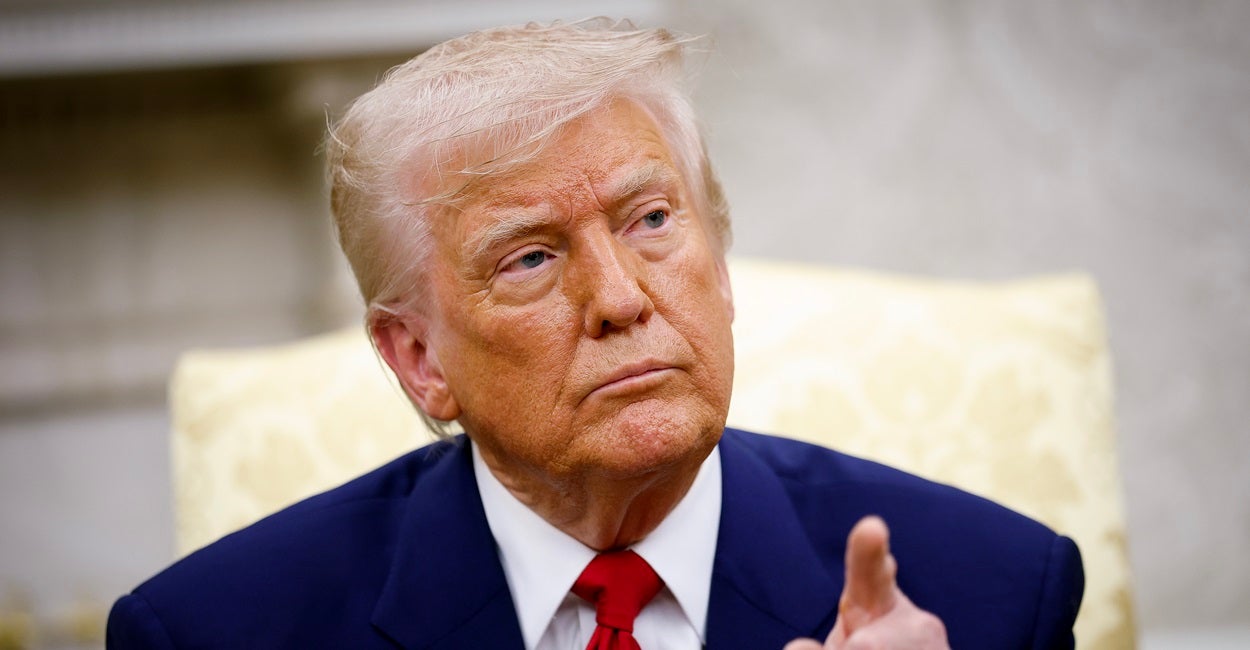
Trump’s Reality-Driven U-Turn
Daily Signal
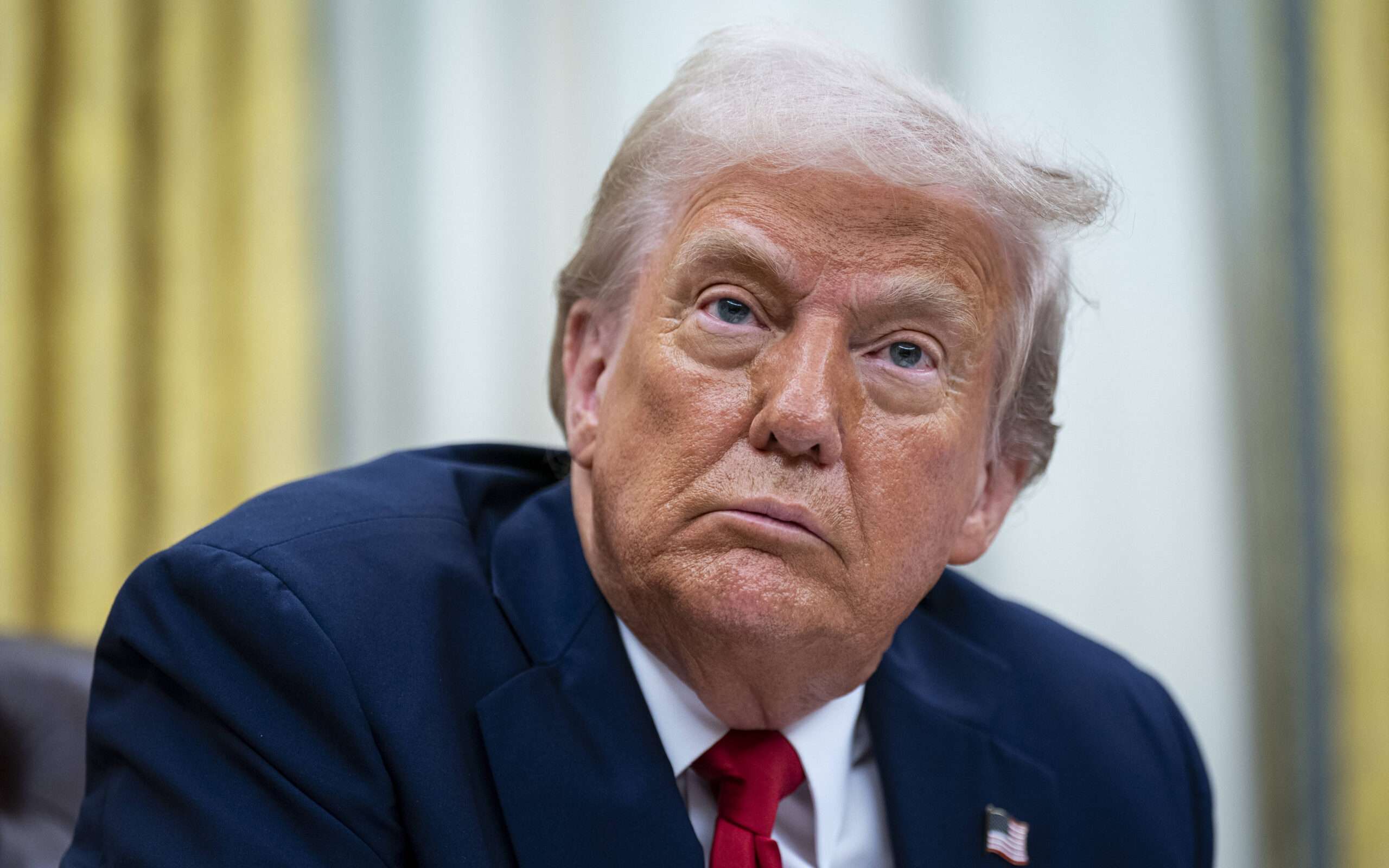
War with China
Reason
Overview
In a significant escalation of trade tensions, China has increased tariffs on U.S. imports from 84% to 125%, amid President Trump's 145% tariffs on Chinese goods. Markets are experiencing volatility, with experts warning of a looming recession. Apple's iPhone production faces pressure as tariffs affect costs, with further predictions of global price hikes. This situation is compounded by Trump's criticisms over the delay of his TikTok deal and rising U.S. consumer sentiment anxiety— the latest index dropped to a low since the pandemic. Despite leveraging its $500 billion U.S. investment plan, analysts question Apple's ability to fully mitigate tariff impacts.
Content generated by AI—learn more or report issue.

Get both sides in 5 minutes with our daily newsletter.
Analysis
- Trump's abrupt tariff decisions have caused chaos in global markets, reflecting poorly on his economic leadership and raising concerns about rising costs for consumers.
- Despite the pause, high tariffs remain in place, particularly against China, leading to worries of increased living expenses and potential negative effects on the economy.
- Critics argue that the tariffs disproportionately affect average Americans with higher prices while failing to address structural issues in international trade. The latest consumer sentiment data, showing a significant drop, reinforces concerns that Trump's trade policies are damaging public confidence.
- Trump defended and acknowledged issues with the tariffs, suggesting they will lead to better trade terms and economic outcomes in the long run, despite current challenges.
- A pause on tariffs for many countries aims to provide room for negotiation, but the tariffs against China have significantly increased, raising concerns about inflation and economic impact.
- Despite Trump's claims of a transitioning economy, consumer sentiment has plunged sharply, with many Americans expressing anxiety about rising unemployment and inflation linked to the tariff policies.
- China's announcement to raise tariffs on U.S. goods to 125% marks a serious escalation in the trade war initiated by the Chinese Communist Party, highlighting their unwillingness to compromise.
- Trump's firm stance on tariffs is portrayed as a necessary measure to protect American interests against China's perceived economic aggressions, suggesting that retaliatory tariffs will not deter U.S. strategies.
- Despite market volatility in response to tariff announcements, there is confidence that long-term negotiations could yield favorable terms for the U.S., as business leaders emphasize the importance of a strong stance against China.
Articles (89)
Center (36)
No highlight available for this article.

No highlight available for this article.
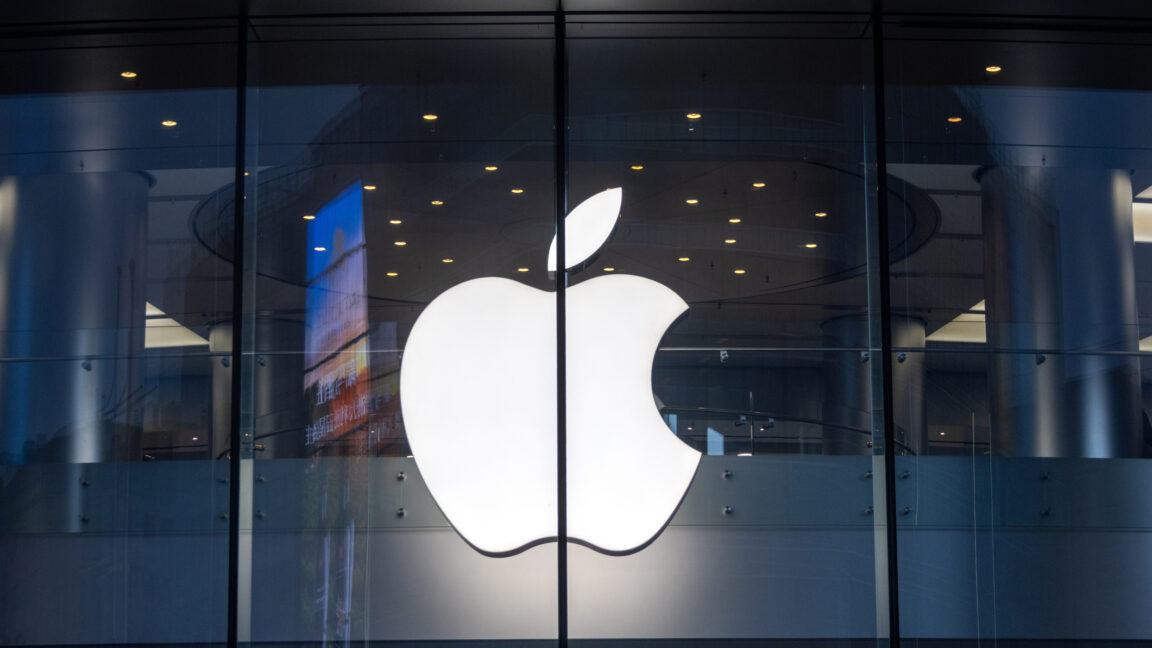
No highlight available for this article.
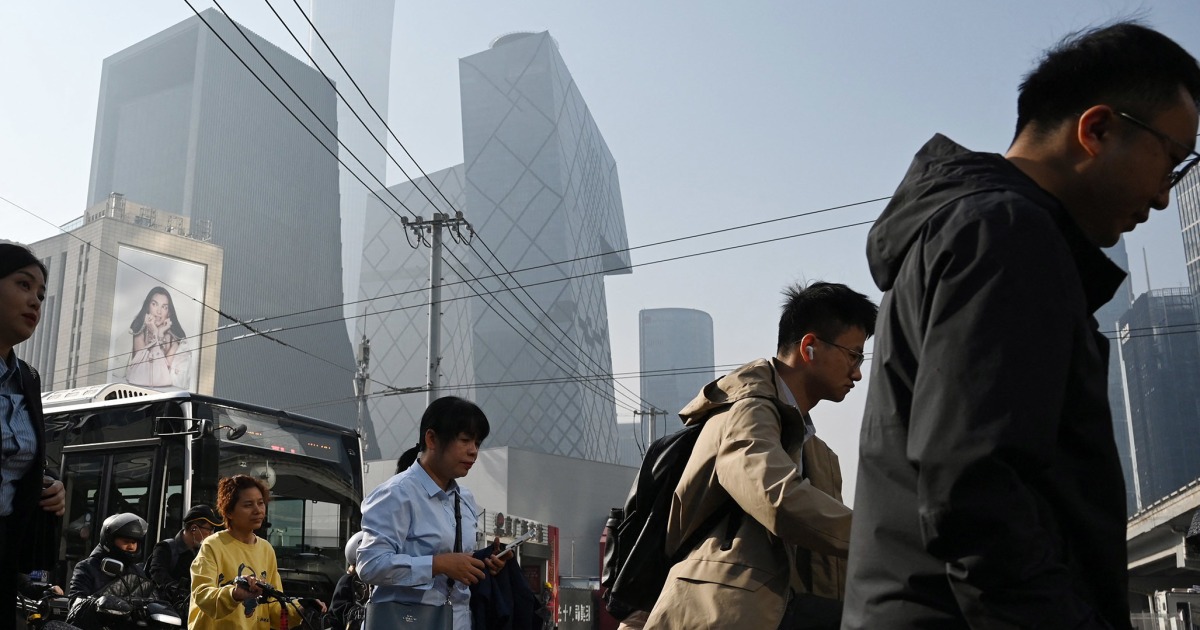
No highlight available for this article.

No highlight available for this article.

No highlight available for this article.

No highlight available for this article.

No highlight available for this article.
No highlight available for this article.
No highlight available for this article.

No highlight available for this article.

No highlight available for this article.
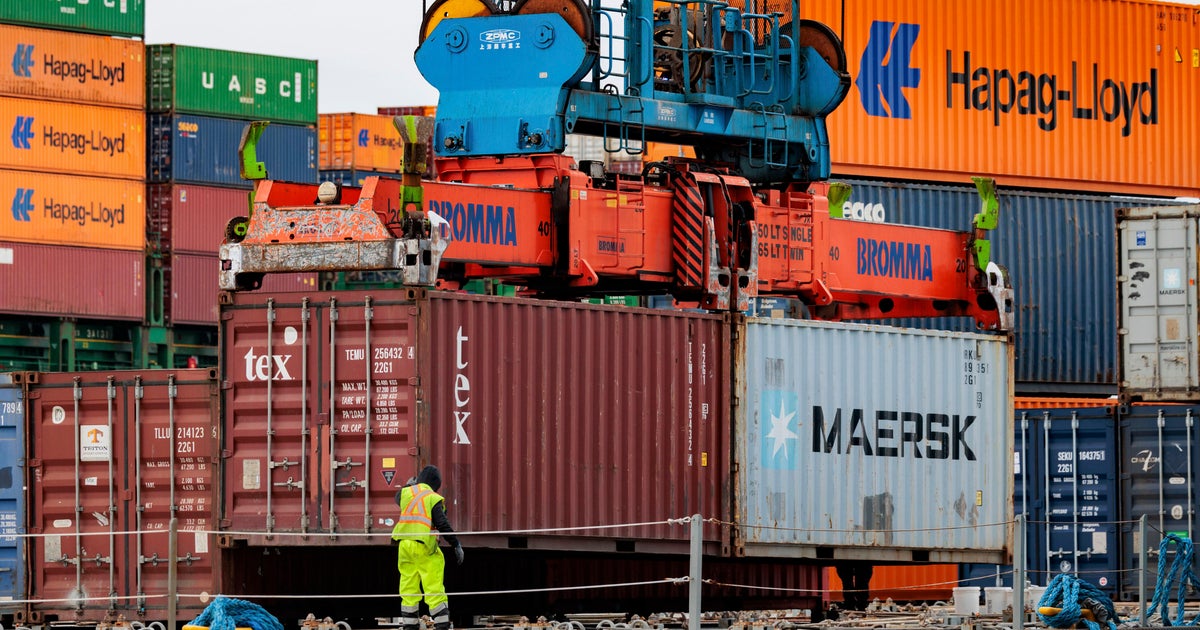
No highlight available for this article.
No highlight available for this article.

No highlight available for this article.

No highlight available for this article.
No highlight available for this article.
No highlight available for this article.

No highlight available for this article.
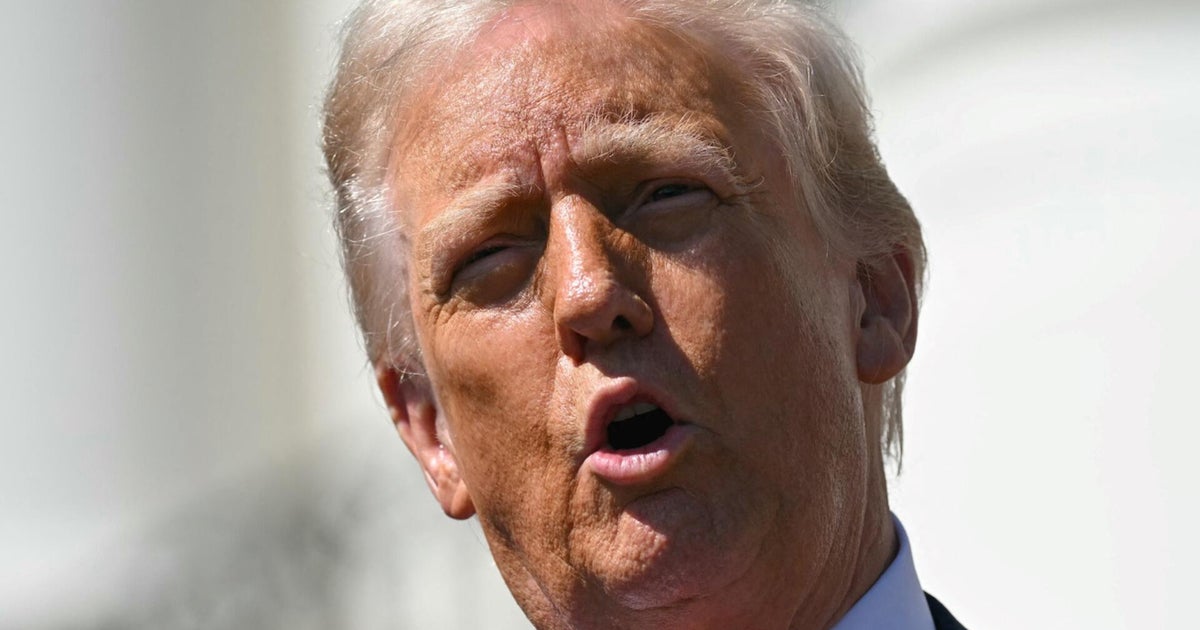
No highlight available for this article.

No highlight available for this article.
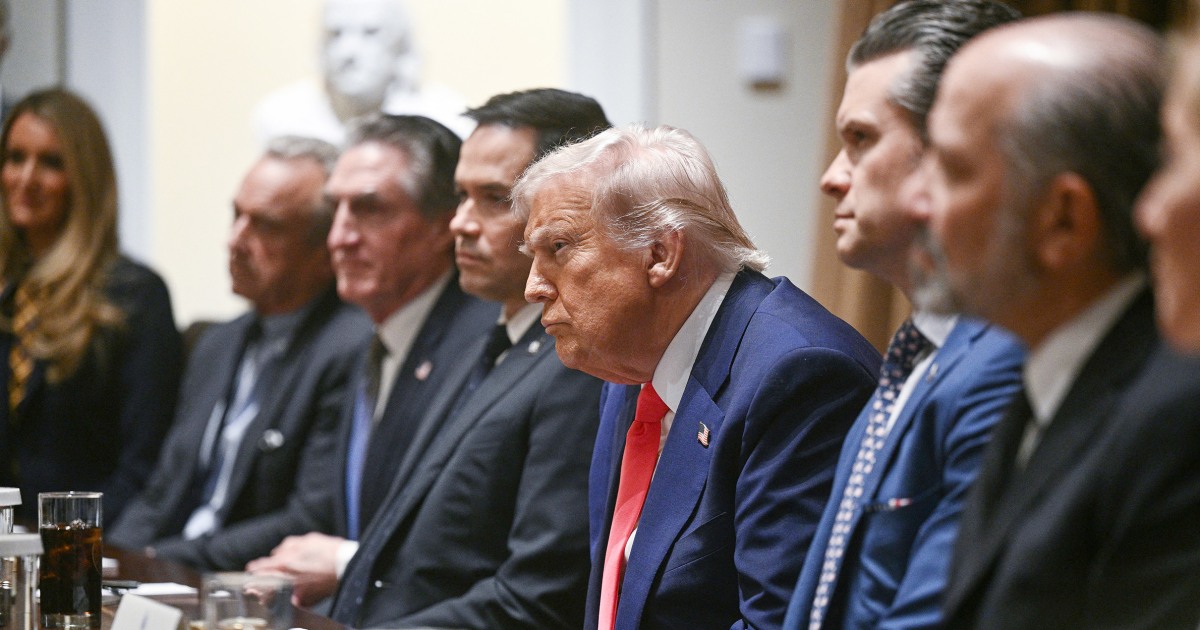
No highlight available for this article.

No highlight available for this article.

No highlight available for this article.

No highlight available for this article.

No highlight available for this article.

No highlight available for this article.
No highlight available for this article.
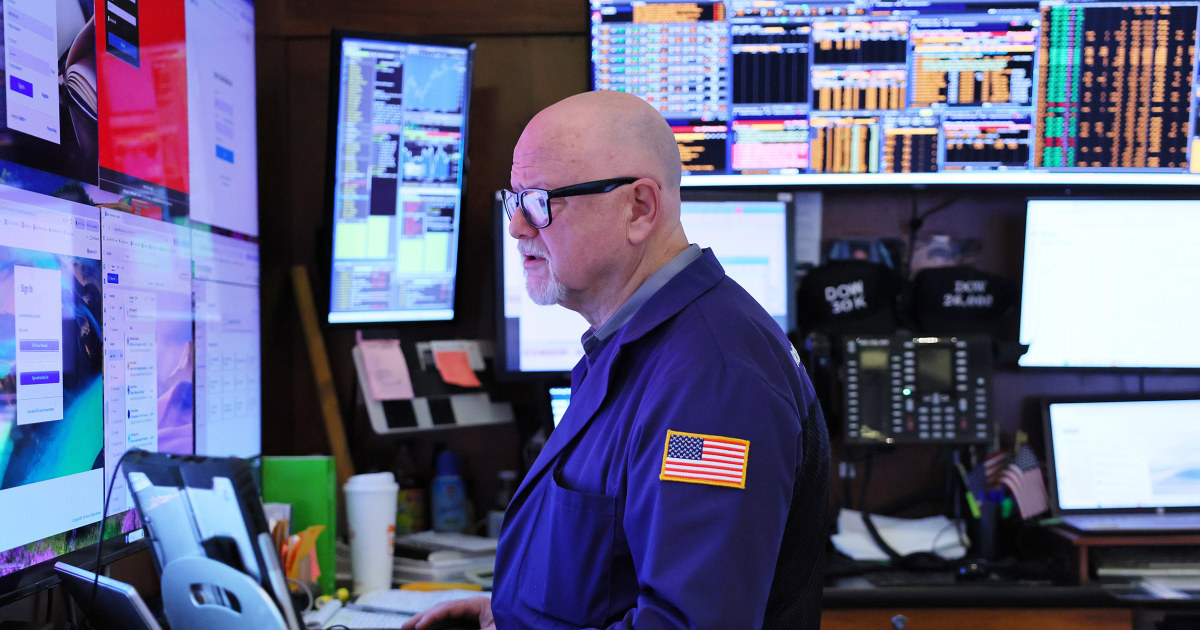
No highlight available for this article.

No highlight available for this article.

No highlight available for this article.

No highlight available for this article.
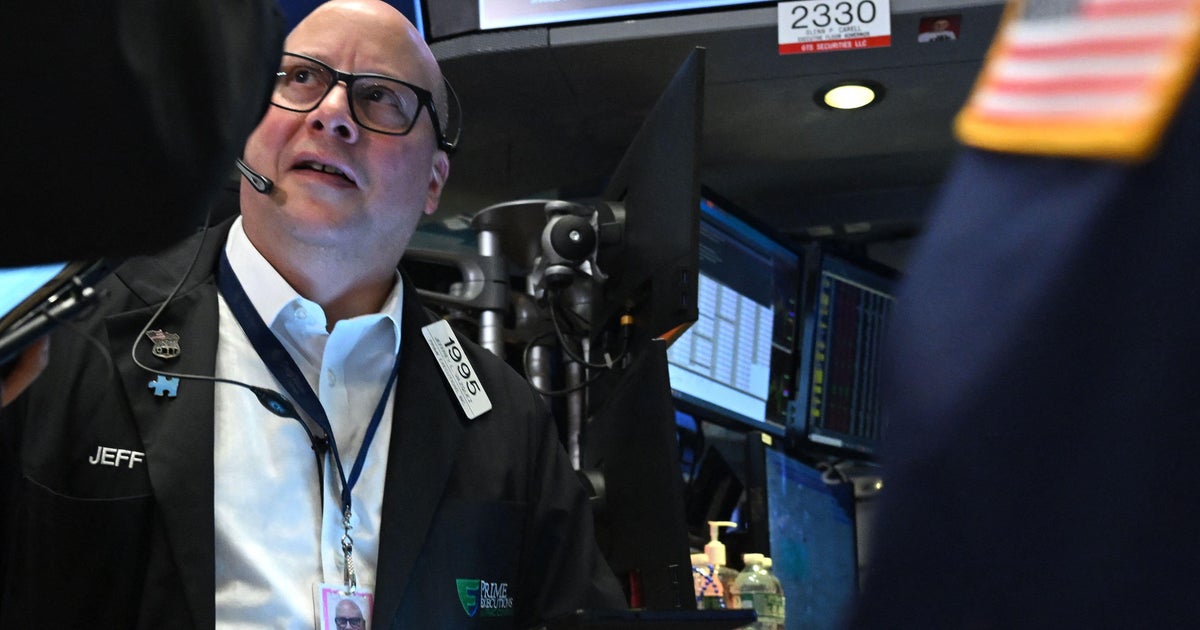
No highlight available for this article.
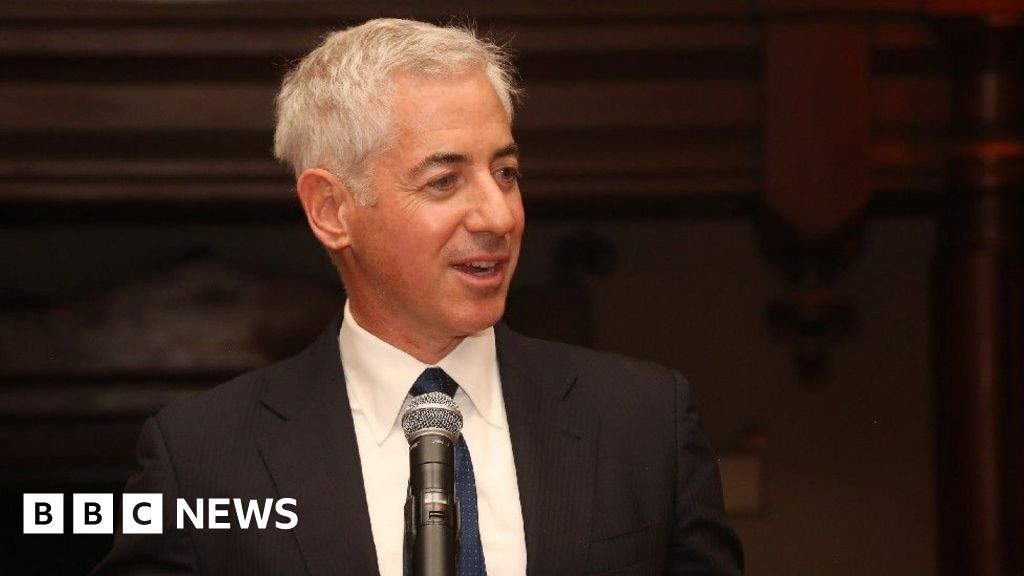
No highlight available for this article.
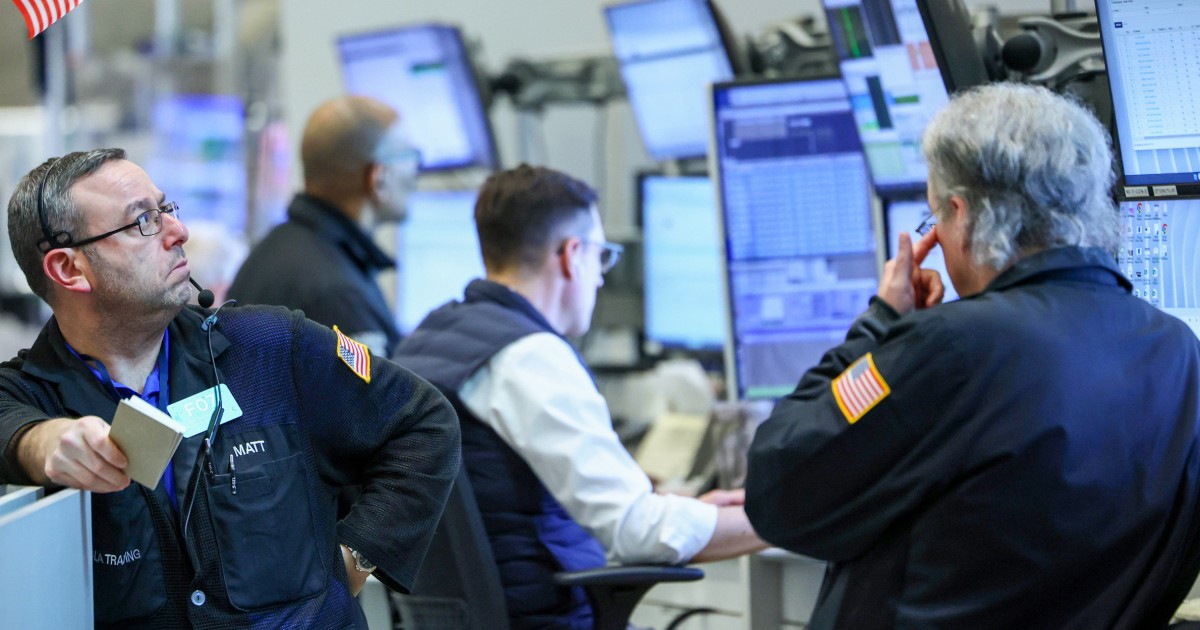
No highlight available for this article.

No highlight available for this article.
FAQ
The tariffs are putting significant pressure on Apple's supply chain, primarily due to its reliance on Chinese manufacturing. Although Apple can temporarily absorb some costs, a sustained tariff war could lead to higher consumer prices. Apple is exploring options like airlifting iPhones from India to mitigate these effects.
Shifting iPhone production to the U.S. is considered unlikely in the near future due to the complexity of Apple's supply chain, labor costs, and the potential for significantly higher prices. Analysts estimate that a U.S.-made iPhone could cost over $3,000.
Apple's stock has experienced a significant decline, dropping by 15% since the tariffs were increased, resulting in a $500 billion loss in market capitalization.
Apple is airlifting iPhones from India and building up inventory in the U.S. to reduce the impact of tariffs. They have also negotiated expedited customs clearance to streamline this process.
History
- 3M

 4 articles
4 articles
- 3M

 4 articles
4 articles
- 3M

 4 articles
4 articles
- 3M

 4 articles
4 articles
- 3M

 4 articles
4 articles
- 3M

 5 articles
5 articles


